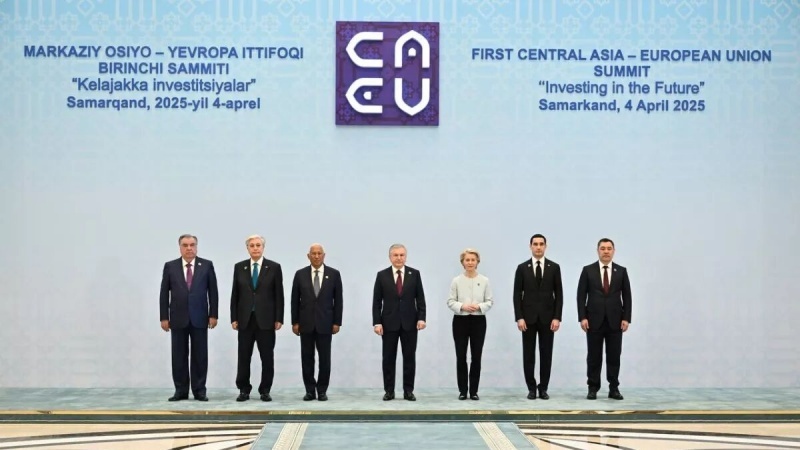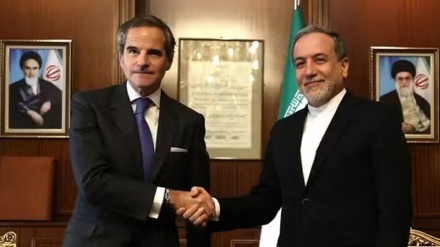EU seeks influence in Central Asia, competing with China and Russia
-

EU-Central Asia summit in Samarkand, Uzbekistan
Pars Today - The European Union has launched an ambitious initiative to strengthen cooperation with Central Asian countries, which have long maintained close military, economic, and political ties with China and Russia. The EU-Central Asia summit, held earlier this month in Samarkand, Uzbekistan, marked the first of its kind and signaled Brussels’ keen interest in expanding its influence in the region.
Amid the great power competition for Eurasian connectivity, Brussels aims to secure a stronger foothold.
According to Pars Today, citing IRNA, the EU is pursuing its “Global Gateway Initiative” to create an alternative trade corridor to China’s Belt and Road Initiative (BRI), allocating significant investments for transport and commercial corridors in Central Asia.
A key outcome of the EU-Central Asia summit was the pledge by European Commission President Ursula von der Leyen to invest €10 billion in the “Middle Corridor” passing through Central Asia. The goal is to halve cargo transport time between Europe and Central Asia to 15 days by bypassing Russia.
Since the onset of the Ukraine war and escalating tensions in the Red Sea, which disrupted supply chains, Central Asia’s geostrategic importance to the EU has grown. Meanwhile, countries like Uzbekistan and Kazakhstan increasingly look to Europe for trade and investment, particularly through enhanced connectivity via the Middle Corridor.
During the April 3-4 summit, Central Asian leaders emphasized that future cooperation should focus on tangible outcomes, particularly in connectivity, trade, energy, and investment in critical raw material supply chains. Central Asia is interested in Europe’s advanced industrial technology, which Russia and China struggle to provide, while Brussels eyes the region’s valuable natural resources.
Central Asia turning its back on Turkey
Another notable, somewhat controversial outcome of the EU-Central Asia summit was the decision by members of the Organization of Turkic States (OTS) to accredit ambassadors to the Republic of Cyprus, an entity recognized by the United Nations as the legitimate government of Cyprus.
According to The Diplomat, the joint statement affirming commitment to UN resolutions that do not recognize the establishment of the Turkish Republic of Northern Cyprus sparked controversy in Turkey.
The report noted that three Central Asian countries—Kazakhstan, Turkmenistan, and Uzbekistan—distanced themselves from Turkey by endorsing two UN resolutions on Cyprus, a move that could lead to diplomatic tensions among allies. These countries are all members of the OTS, a group founded in 2009 in Azerbaijan based on shared cultural and historical ties, with its headquarters in Istanbul.
Tenth OTS summit, Astana 2023
Since Kazakhstan joined the OTS as an observer in 2022, its officials have participated in several summits, including the eleventh summit last year in Bishkek. However, the Turkish Republic of Northern Cyprus was not invited to the previous summit in Astana.
Two years ago, Dietmar Krissler, an EU foreign policy official, warned of potential “negative effects” for countries supporting the OTS decision to accept the Turkish Republic of Northern Cyprus as an observer.
Some observers view the decision by Kazakhstan, Turkmenistan, and Uzbekistan as a blow to Turkey, particularly as these countries grow closer to Europe and the West. This comes at a time when Turkey, after China and Russia, holds significant influence in the region.
MG/BK


